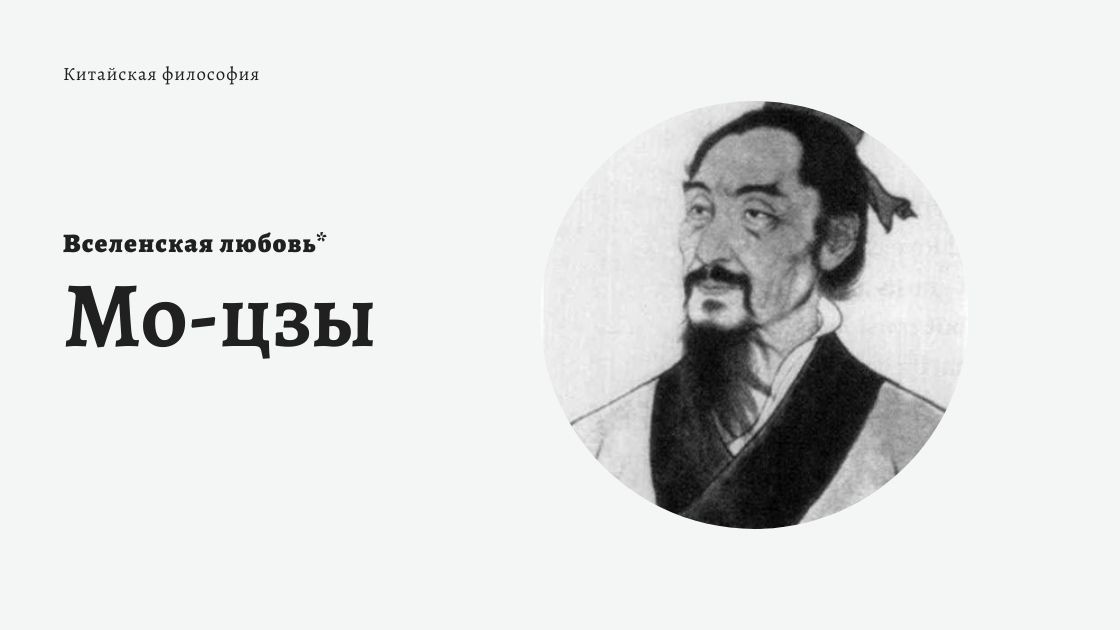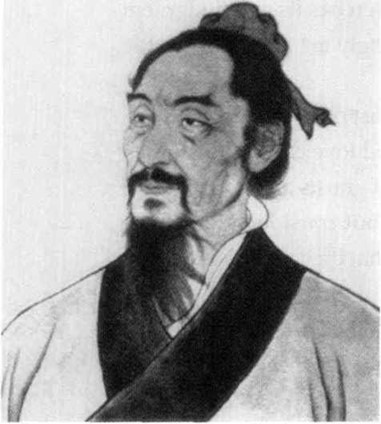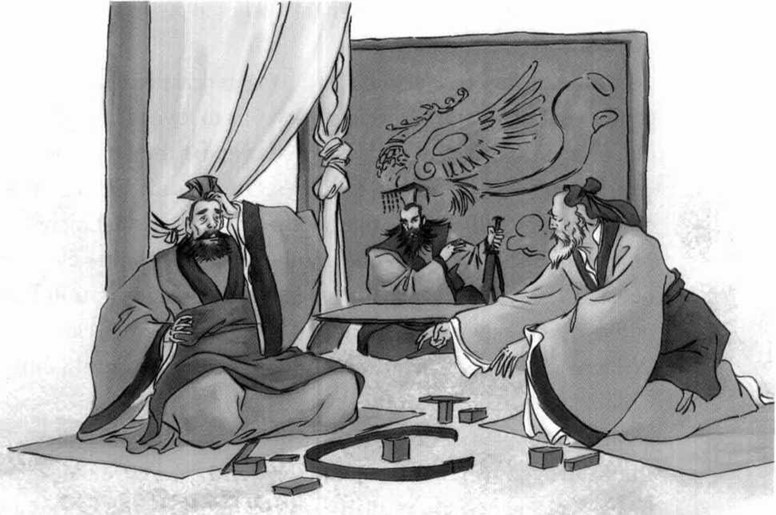Mo Tzu: Main Ideas

Most political philosophers in the pre-Qin era devoted themselves to reconsidering social orders, as did Mozi (c. 475-395 BCE). Mozi's basic ideas were different from those already known.
Mozi studied Confucian theories in his youth and created his own school after becoming dissatisfied with Confucian teachings. Mozi traveled to the provinces to promote his ideas as he grew older, hoping that emperors would take his advice seriously when governing their provinces. But most emperors did not accept what he said, so he was never appointed to any position.

Mo Tzu was a great scholar of his time. He was said to have invented many weapons and machines. He once spent three years inventing a wooden eagle, but it did not fly for long, only one day. He once successfully persuaded the Emperor of Chu not to attack the Song state.
The Mohists were those who put Mozi's ideas into practice. They were mostly lower-class intellectuals, and their leader was called a "master (juzi 巨子)". There was a strict legal practice that required its members to "enter fire or step on sword blades, and even death would not make them flee."
Compared to the nobility that Confucianism brings, Mozi's political philosophy has a solid foundation for ordinary people to form an ideal society. Mozi completely denies responsibility for war and takes "condemnation of war" as the fundamental principle of Mohism. He argues that if you regard others' bodies as parts of your own body, then you begin to perceive "attack" as the destruction of others' existence. If someone accepts others' bodies as the same as their own, they will not go to war.
“All-encompassing love (jianai 兼爱)” is Mozi’s theoretical premise for condemning war. “All-encompassing love” is love for all people without discrimination, no matter how far apart they are, no matter how emotionally close. Mo Tzu says: "Universal love for one another is mutually beneficial; universal hatred for one another is mutually harmful." Mo Tzu believes that everyone should love one another so that they regard other states, families, and bodies as their own." The idea of "universal love" is close to the Western idea of philanthropy and is much more selfless than the Confucian love for humanity.
"Universal love for one another is mutually beneficial; universal hatred for one another is mutually harmful."
Mo Tzu
Mozi advocates the idea of the will of heaven (tianzhi 天志). He thinks that heaven has will and judgment, and that rulers are sons of heaven. Heaven can punish them, so rulers should be careful about behavior that might bring praise or punishment from heaven. The fundamental will of heaven is all-encompassing love. His idea that heaven has a will indicates that heaven has its own judgment of human affairs. Humans should voluntarily act according to the will of heaven.
Since heaven (tian) has a will, rulers must obey what tian is benevolent. Tian wants people to behave well and love each other. If they do not, tian will punish them with ghosts and spirits. Mozi not only acknowledges the existence of spirits, but also considers them wiser than sages. This reminds rulers that they must remain in awe of gods and spirits more powerful than themselves.

In governing the state, Mozi advocates two points: promoting the capable (shangxian 尚贤) and agreeing with the superior (shantong 尚同). “Promoting the capable” means selecting those who are capable of participating in state affairs. According to Mozi, every person should have the opportunity to participate in social governance, regardless of their experience. He encouraged rulers to select talented people regardless of their qualifications.
Mo Tzu believes that those who are elected through promotion should meet with their superiors after they enter the state administration system and find common ground. “To come to an agreement with the superior” means to achieve agreement in thoughts and political centralization. In Mo Tzu’s view, it is necessary to regulate ideas and achieve political centralization.
Mozi condemns music. He sees it as a luxury that is of little value to most people. In his view, politics should not burden the common people. It should be carried out in accordance with their basic needs. Mozi also recommends frugality in funerals because he believes that spending money on the dead drains the wealth of the living. For Mozi, the dead should not compete with the living for resources. Stinginess in funerals and reducing the cost of funerals avoids the waste of such resources, "condemning music" and "stinginess in funerals" are the ideals of the citizens, opposing the nobles' spending money on music and lavish funerals. Mozi believes that rulers should spend time and money on the common people.
Mo Tzu has a methodology for understanding the world by three criteria of judgment: its basis, its verifiability, and its applicability. The first verifies the will of heaven and spirits, as well as the deeds of the ancient emperor-sages. The second verifies the judgment using the eyes and ears of ordinary people. And the third observes whether the decision is beneficial to the country and its people. Mo Tzu hopes that ordinary people will benefit from his judgment. This is a pragmatic understatement of the truth.
Translation of the fragment: Chinese Philosophy by Wen Haiming (pp. 52-55)

